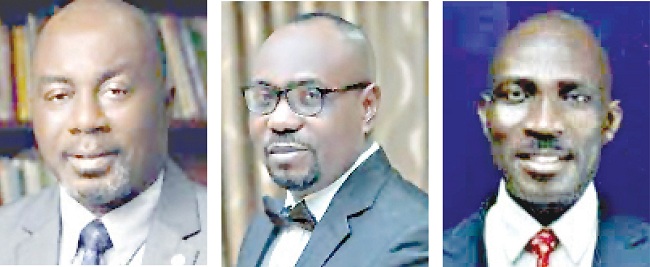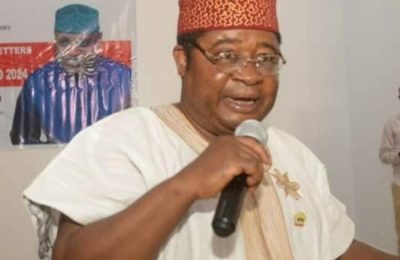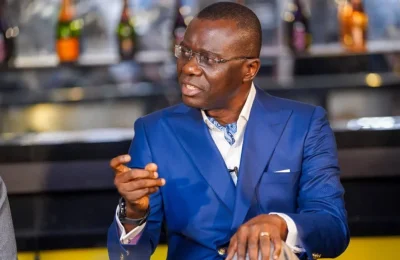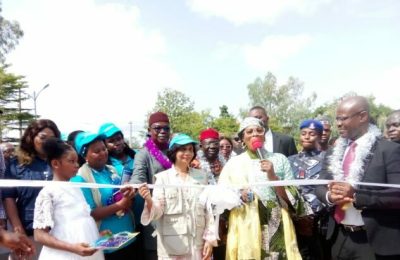

SADE OGUNTOLA writes on the critical issues stakeholders have highlighted which the incoming government needs to prioritise to be able to ensure good health care for the people, and a satisfied workforce in the sector.
AFew days from now, Senator Bola Ahmed Tinubu will be inaugurated as the president of Nigeria. His administration will have to take control of a health sector that has fallen far short of Nigerians’ expectations. Not only has there been high level of food insecurity in the country, among other challenges, there have also been poor health indexes, high out-of-pocket spending on health, outbreak of non-communicable diseases, and incessant doctors’ strikes.
Various stakeholders in the healthcare sector of the nation’s economy have, however, offered suggestions they believe could assist the new administration in repositioning the sector:

‘Implement existing laws and policies to improve health’
The national president of the Medical and Dental Consultants of Nigeria (MDCAN), Dr Victor Makanjuola,says there is the need to focus on implementing existing laws and policies that have been drafted to improve the health of Nigerians.

He said, “The National Health Act of 2014, for instance, made good provisions for emergency care of Nigerians. As such, Nigerian citizens in need of emergency care will not need to have a kobo on them to receive emergency care in both private and public health facilities. So, the next government needs to look towards operationalising this with immediate effect.

“The primary health care also needs further focusing by this new government. This requires increased access to the Basic National Healthcare Provision Fund (BNHPF) stipulated by the National Health Act of 2014. Only very few states in the nation have been able to access the funds due to the rigorous criteria that need to be met.
“Currently, the National Health Insurance Scheme covers just about five percent of Nigeria’s population, whereas we need a scheme that covers between 80 and 90 percent of Nigerians, such that the recourse to catastrophic spending when one is ill is eliminated.
“So, it is important that the Nigerian Health Insurance Act signed into law in 2022 by President Buhari be implemented to the letter to ensure the issue of healthcare financing becomes relatively easier and better funded.
“While all these might reduce medical tourism, the new government urgently needs to improve on the welfare of healthcare workers left in the system. It is inheriting a depleted health workforce, and their emigration has not stopped.”
‘Address erratic power and chaotic drug distribution chain’
Chairman, Association of Community Pharmacists of Nigeria, Oyo State branch, Mr Bayo Gbadamosi, said ensuring regular power supply should be topmost on the agenda of the Bola Ahmed Tinubu’s new government.
“It is paramount to the survival of retail pharmacy; we spend a fortune on other power sources because we have thermal-liable products that must be stored at a particular temperature.”
Mr Gbadamosi added that stopping the chaotic drug distribution chain in the country requires political will, and that ensuring only licensed persons handle drugs is also important for a good healthcare sector.
“Drug is on the exclusive list because if they are not properly made, it can cause a national catastrophe where people will just be dying. The chaotic drug distribution needs to be checked; government needs to stop drug distribution in market places.”
Bank for Health
President of the Pharmaceutical Society of Nigeria (PSN), Professor Cyril Usifoh, in his catalogue of demands asked for a health bank, local manufacturing of drugs, excipients, packaging materials and related materials for pharmaceutical companies and an unrestricted appointment of the office of the Health Minister to competent health workers, administrators and managers.
He also made a case for a gradual import substitution, better welfare for public sector pharmacists and a new scheme of service which recognizes Doctor of Pharmacy degree as entry requirement for consultant cadre at terminal point for hospital and administrative pharmacists. He also called for a proper funding of health as well as appointment of a Special Adviser on the Pharmaceutical Sector.
“The current infrastructural deficit in the health sector alone is estimated to be a huge $200 billion, which includes deficits of about 400,000 beds, modern gadgetry and equipment. If Nigeria places a premium on sectors like Industry and Agriculture which already have banks, the health sector definitely does not deserve less.
“As we move towards 2023, a conscious need arises for (the president) to change this orientation to pave the way for a competitive selection process from a pool of health experts who might be health professionals or those with the needed pedigree in management and administration to lead the ministry, departments and agencies in the health sector.
“In contemporary times, only the Obasanjo administration was bold enough to jettison the tendency to insist that the health minister must be a physician by having non-physicians in charge of the Federal Ministry of Health for seven and a half years out of his eight-year tenure.
“Our nation must strive towards renewed investments in local manufacturing of drugs (APIs), excipients, packaging materials and so on, by facilitating the emergence of petrochemical plants which boost primary manufacturing in all sectors of the economy.
“The resultant boom catalyses significant boom in the real sector and improves the GDP of the nation. Employment improves and national security as well as medicine security can be guaranteed in this envisaged scenario.
“(There is) the need for a gradual import substitution by strengthening technological capability, reducing foreign dominance, building indigenous capacity, encouraging small scale industries, reducing income inequalities.
“We must upgrade the Nigerian Institute for Pharmaceutical Research and Development (NIPRD) to a Central Drug Research Institute. Nigeria must adopt and develop a national strategy and plan of action for pharmaceutical manufacturing’.
“We must create incentives to move our local companies progressively along the pharmaceutical industry value chain from importation to local manufacturing, as well as develop a national system to coordinate health technology research across our universities and research institutes working closely with industry.”
‘Health sector needs rehabilitation’
The National Association of Nigeria Nurses and Midwives (NANNM) president, Comrade Micheal Nnachi, on his part emphasized the need for nurses to be carried along in the formulation of policies on health, without the government being coerced.
“Nurses are not heard. Until we rise and provoke the government’s reaction. The health sector as it is today needs rehabilitating in such a way that those who seek medical care outside Nigeria will use our facilities. Key to these is having functional working equipment both in the clinics and laboratories.
“The depletion of the work force of nurses and midwives is nothing more than poor condition of service. Without addressing this, the Federal Governments will not be able to actualize universal health for all and sustainable development goals because nurses play critical roles in the health sector.”
Special allowance for physiotherapists
Vice President, Nigeria Society of Physiotherapy, Mr Oyinlola Odunsan, said the incoming administration needs to employ more physiotherapists as all departments of physiotherapy in the country are extremely short-staffed, just as there is a need to adjust salaries of physiotherapists like that of medical doctors.
In addition, he made a case for the payment of specialist allowance to physiotherapists in various specialty areas of physiotherapy,as well as the approval of Doctor of Physiotherapy (DPT) as the new minimum basic qualification for practice of physiotherapy in Nigeria.
“Brain drain is a challenge that the government needs to address. Immediately physiotherapists graduate from university, more than 50 percent of them move abroad for greener pastures. The situation is getting worse now with very senior and experienced physiotherapists moving abroad as well.
“We have been agitating for adjustment of the CONHESS salary scale since 2014. You will recollect that CONMESS salary scale for medical practitioners was adjusted upwards in 2014 while CONHESS was left untouched.
“We appeal to the new government of President Tinubu to bring smiles on the faces of our members by looking into this problem.”
‘Create department for medical laboratory services’
Mr Simeon Ibekwe, UCH, Ibadan branch chairman of the Medical and Health Workers Union, stated that creating a department for medical laboratory services by the incoming government will ensure medical laboratory scientists and technicians have a free hand to operate and prevent some lapses currently in access to quality laboratory services.
“For instance, if there is a department of medical laboratory services, it will be easier to order what is needed at the right time and when necessary. Of course, it will be good if the incoming government also fills the gap of workforce in the laboratory.”









